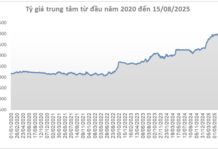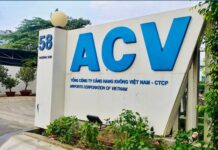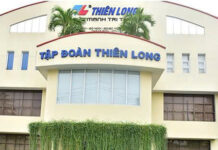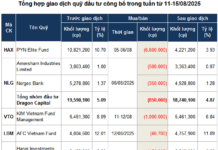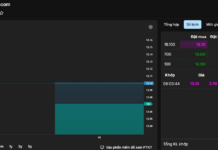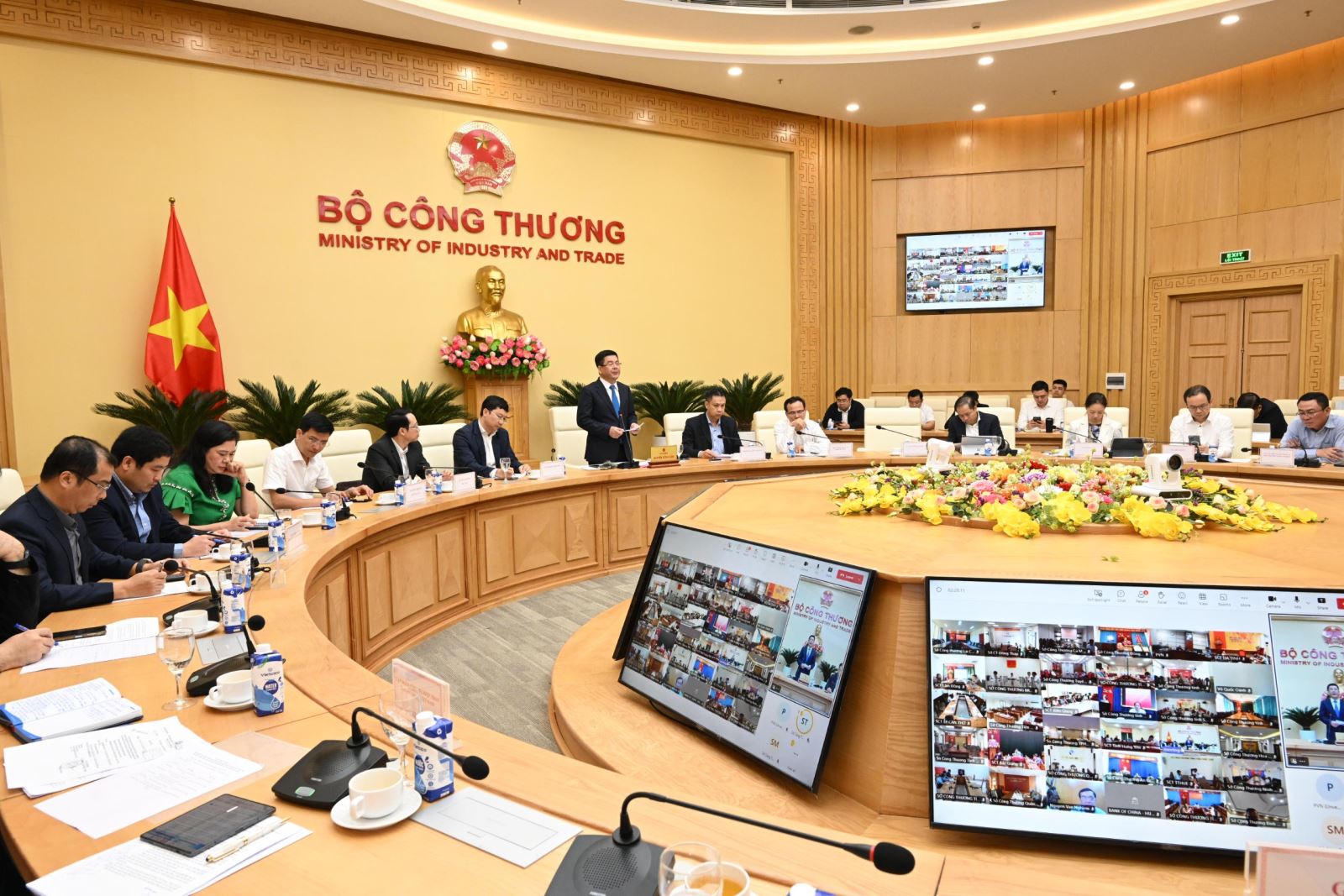
Representatives from the Government Office, ministries, localities, associations, and energy industry attended the conference.
At the conference, representatives from the Department of Oil and Gas and the Department of Coal and Minerals summarized the key points of Vietnam’s hydrogen energy development strategy, as stated in Decision 165/QD-TTg. They highlighted the viewpoints, production and usage objectives, from 2030 to 2050, and the solutions and tasks of relevant ministries, departments, and businesses to implement the strategy. The Ministry of Industry and Trade has also drafted a plan with 17 main tasks to be assigned to units.
According to the representatives, the goal of the hydrogen energy strategy is to develop Vietnam’s hydrogen energy ecosystem based on renewable energy, including production, storage, transportation, distribution, domestic use, and export, with synchronized and modern infrastructure to ensure energy security, achieve national goals on climate change, sustainable growth, and zero emissions by 2050, following Vietnam’s commitments and roadmap for sustainable and just energy transition.
To achieve these goals, the hydrogen energy strategy proposes a range of new mechanisms and policies, including diversification of capital sources, investment forms, attracting investment from non-state enterprises, international partners, increasing investment in science and technology, human resource development, applying market tools to promote green growth, low-carbon economy, circular economy, prioritizing international cooperation and communication to raise awareness of the benefits of the hydrogen economy, state policies in the field of clean energy to the entire society.
The conference featured 15 speeches by representatives from the Government Office, central ministries, the State Capital Management Committee, localities, departments, and corporations in the energy industry, as well as professional associations and international organizations such as USAID and GIZ. The opinions highlighted the necessity and importance of hydrogen energy in Vietnam’s goals for green energy transformation and achieving zero carbon emissions by 2050. The delegates also highly appreciated the determination and efforts of the Ministry of Industry and Trade in quickly developing and submitting the hydrogen energy strategy to the Prime Minister, as well as developing and issuing the plan for implementing the strategy within just 15 days after the Prime Minister’s approval.
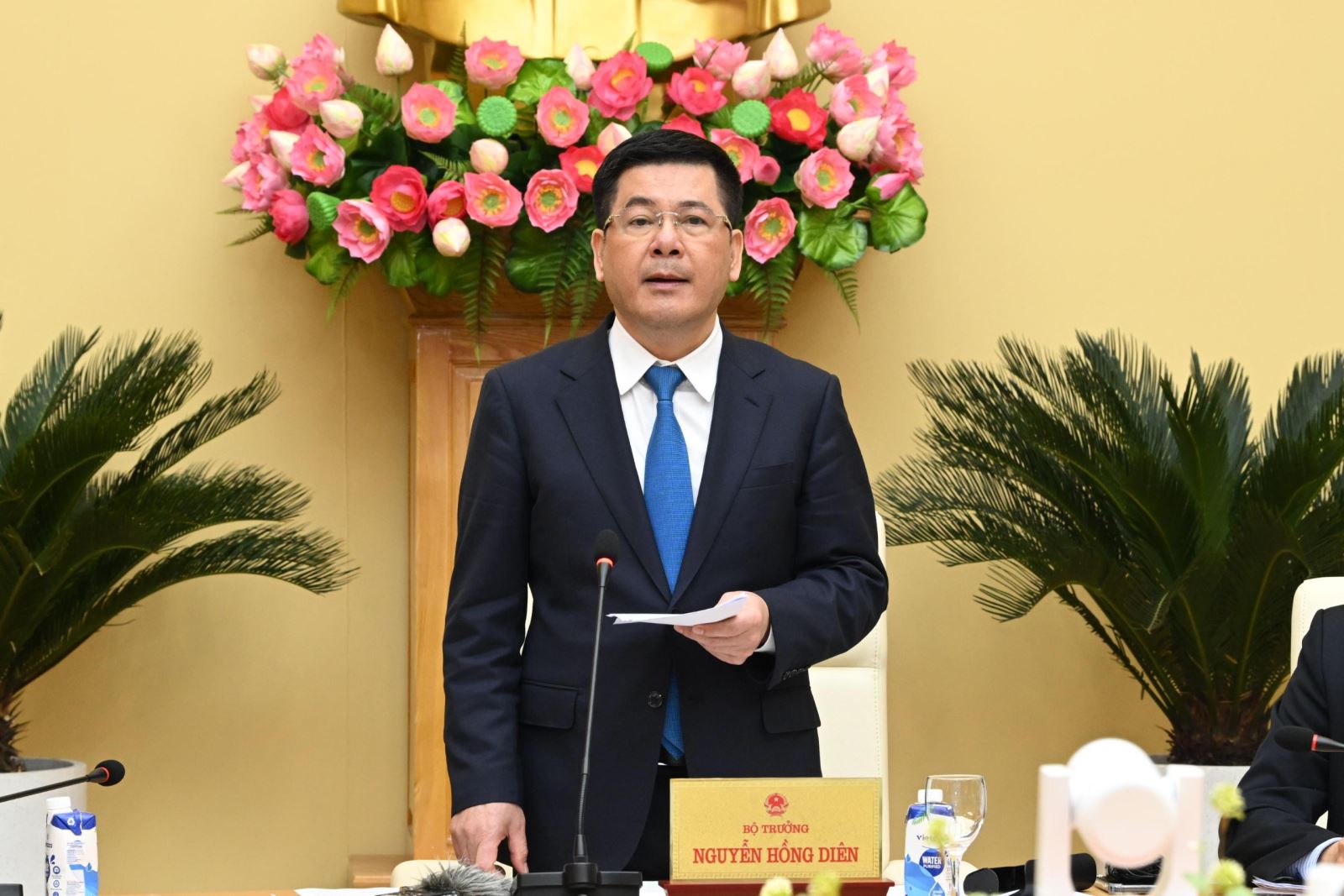
Minister of Industry and Trade Nguyen Hong Dien speaking at the conference.
Minister of Industry and Trade Nguyen Hong Dien affirmed that hydrogen is clean, safe energy and is being encouraged for gradual replacement of fossil fuels. It is also predicted to account for a significant proportion of the global energy structure in the near future. The development orientation of hydrogen energy was already mentioned in Resolution 55-NQ/TW dated February 11, 2020, by the Politburo on the national energy development strategy of Vietnam until 2030, vision until 2045, specifically in terms of research, construction of pilot projects, and promotion of suitable hydrogen energy usage in line with global trends.
The development direction of the hydrogen field is also emphasized in the Comprehensive National Energy Plan for the period 2021 – 2030, vision until 2050 (Decision 893/QD-TTg dated July 26, 2023), and the National Power Development Plan for the period 2021 – 2030, vision until 2050 (Decision 500/QD-TTg dated May 15, 2023), which demonstrates the special importance of this field for Vietnam’s energy development orientation.
“Vietnam is one of the first 40 countries in the world to approve this strategy to gradually replace fossil fuels in the future. The Prime Minister’s approval of the hydrogen energy strategy holds great significance by opening up new development opportunities for Vietnam’s energy sector towards green, clean, and sustainable development. Along with abundant renewable energy sources, it will help Vietnam fulfill the carbon neutrality commitment by 2030, meeting domestic and export demands, in line with the Party and State’s perspective and direction on energy transition towards greenization and the overall development trend of the world, as well as Vietnam’s commitment at COP26,” Minister Nguyen Hong Dien affirmed.
To effectively implement the hydrogen energy strategy, Minister Nguyen Hong Dien proposed that ministries, departments, localities, corporations, associations, enterprises, and functional units under the Ministry of Industry and Trade focus on organizing and implementing the tasks assigned by the Prime Minister in Decision 165/QD-TTg.
Central ministries and localities are urged to effectively implement the tasks assigned by the Prime Minister in the approved strategy, including updating the principles and orientations in the strategy for adjustment, supplementation, integration into national and provincial sectoral plans; researching, proposing the construction, modification, supplementation of legal documents, related mechanisms, particularly policies that encourage the use of hydrogen fuel for vehicles, equipment, green transportation infrastructure; researching, issuing national standards for hydrogen production, usage, storage, transportation and carbon capture/utilization/storage (CCUS) in accordance with international regulations and standards; building national programs on science and technology and training high-quality human resources for the hydrogen energy sector and effectively implementing climate change programs, greenhouse gas emission reduction according to international cooperation programs.
The state corporations, corporations, and energy industry associations need to thoroughly grasp and effectively implement the tasks and solutions set forth in the strategy; proactively research, propose, and actively participate with competent authorities in the formulation and issuance of feasible regulations and mechanisms to promote hydrogen energy development; actively build and adjust the development strategy and plans of the enterprises to ensure they are in line with the hydrogen energy strategy; mobilize capital from domestic and foreign sources for investment projects in hydrogen-based energy.
The functional units of the Ministry of Industry and Trade should focus on effectively communicating and widely propagating the role, significance, and core contents of the strategy; urgently propose the construction and submission of specific plans to implement the goals and solutions set forth in the strategy; coordinate with relevant ministries and agencies in researching, advising on the formulation of relevant regulations and mechanisms, as well as monitoring and urging the implementation of hydrogen energy projects; submit monthly reports on the progress and results of strategy implementation according to assigned tasks and promptly advise the Ministry’s leadership and competent authorities on addressing emerging difficulties and obstacles.









